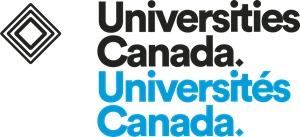UBC experts talk global food security & climate solutions at the Canada-in-Asia Conferences in Singapore
UBC professors shared their expertise and joined international panels on...
How we treat each other in our own community says a lot about how we see ourselves collectively as global citizens – because responsibility, respect and reciprocity begin at home. That is a core tenant of In Service, UBC’s ambitious global engagement strategy launched in April 2021, and two recent funding awards underscore that by deepening and broadening Indigenous community, connection and opportunity locally, nationally and abroad.
UBC Go Global’s Global Indigenous Connections project won $412,000 from Universities Canada Innovation Fund on Sept. 30. Combined with Go Global’s student awards and in-kind work, funding will total $500,000 over four years. In addition, Universities Canada awarded the UBC Faculty of Forestry $500,000 to expand international study options for Indigenous, disabled and lower-income students to non-traditional countries, such as Ecuador, Chile, Germany, Austria, Italy and Finland.
“We are delighted by these awards because these are exactly the type of programs we need today,” said UBC President and Vice-Chancellor Santa J. Ono. “We see our role as playing a pivotal part in building a better world – standing ‘in service’ to people, ideas and the planet.”
Said UBC Vice-Provost, International Dr. Murali Chandrashekaran: “Catalyzing transformative learning experiences in global contexts, on global issues – and shepherding students on their voyages towards global citizenship and leadership – is central to In Service. Meaningful collaborations that emphasize our shared values pave the way.”
Go Global, Global Indigenous Connections
Forging personal relationships between Indigenous people around the world can often make the difference between alienation and belonging, isolation and community. Said second year UBC student Hunter Lang, who took part in Go Global’s first Global Indigenous Connections online forum: “I was directly learning from community members who are the ones who feel the effects of colonialism and cultural genocide/invisibility.”
Substantially widening access is an essential part of the program, said Go Global Director Taryn Cigagna. “It offers students both virtual and in-person learning opportunities aimed at connecting Indigenous and non-Indigenous students at UBC with Indigenous students, faculty and community members in other areas of the world,” she said.
Started in February 2021, Global Indigenous Connections is a multifaceted program. The aim is connecting Indigenous and non-Indigenous UBC students with Indigenous students, faculty and community members near and far. In addition to in-person sessions at partner universities on the other side of the world, it gives students who might not be able to travel for financial, family or personal reasons a chance to join virtually.
The Innovation Fund inspired the program, which began in February as a virtual exchange pilot, funded by a Universities Canada grant. “Indigenous Peoples of the Global South” included four Zoom workshops for Indigenous students at UBC to learn with and from Indigenous peoples of Argentina and Brazil.
Testing approaches to prepare students to transition to in-person experiences was one of the pilot’s objectives, along with creating new alliances to close gaps in resources for student study and work abroad opportunities. Another aim was identifying pathways for program development, enhancement and roll-out, looking towards transferring successful models across post-secondary institutions.
For the next phase, through the second virtual exchange program, UBC and Global South students will share their contexts with each other, and learn about lived experiences and contemporary issues in their respective communities. At a follow-up international study tour, UBC students will travel to Argentina or Brazil to learn directly with the Indigenous communities they have met online and collaborate on community projects. The project is unique in that it also links Indigenous youth in British Columbia with UBC students to foster mentorship, leading to greater interest in post-secondary education, as well as international study and work.
Building on the success of the initial pilot, UBC is partnering with Argentina’s Universidad Austral and Brazil’s Teia das 5 Curas network. Both support knowledge sharing and long-term relationship-building between UBC Indigenous students and Indigenous communities in Argentina and Brazil for collaborations on education, health and food security.
Each year, Global Indigenous Connections will partner with an Indigenous community in Canada to support Indigenous youth alongside UBC students and international partners, with input from UBC’s Institute for Critical Indigenous Studies.
Faculty of Forestry, Forests and Livelihoods International
Expansion is on the Faculty of Forestry’s agenda. It will fully fund 42 students – Indigenous, low-income and those with disabilities – on adventurous overseas field courses, coops, internships and study abroad placements, as well as pay half of the expenses for 36 others. Students will explore how the complex interactions of global forest management, conservation and land use shape people’s livelihoods.
The main goal of Forests and Livelihoods International, said Dr. Suzie Lavallee, Professor of Teaching and Academic Director at Vantage College UBC, is to “give students incredible opportunities. In addition, we want to break down barriers of historical exclusion for experiential learning by developing best practices to support these students.”
Forestry will draw on partner organizations and advisory groups for local context, and customize student supports. The faculty maintains strong ties in Germany, Austria, Italy and Finland through the dual master’s program, started in 2011.
“Our European partners are keen to grow this collaboration through undergraduate exchanges,” said Jorma Neuvonen, Assistant Dean for Professional Education and International Collaboration at the Faculty of Forestry. “We’re developing academic exchange and research initiatives with our newly-formed relationships with institutions in Chile and Ecuador as well, with the goal to build long-term collaborative programs at the graduate and undergraduate levels.”
Read more about Go Global programs.
Find out more about UBC's Faculty of Forestry.
These projects are funded by Global Skills Opportunity, the Government of Canada’s outbound student mobility pilot program.

(image: Universities Canada)

(image: Global Skills Opportunity)